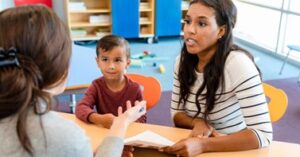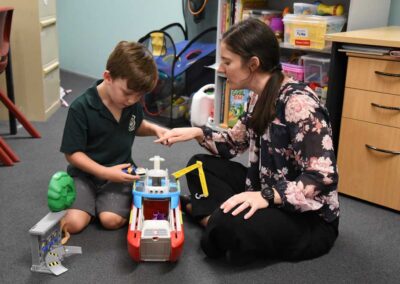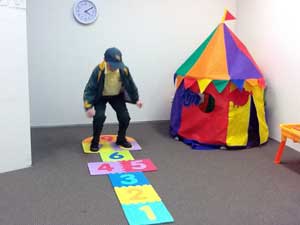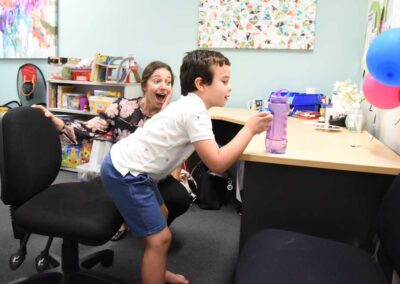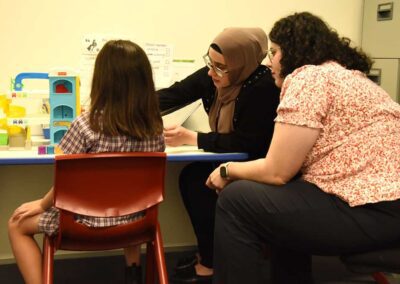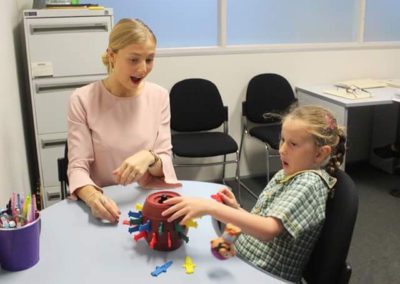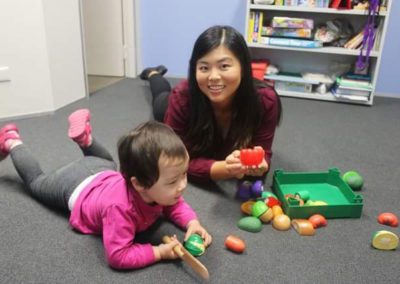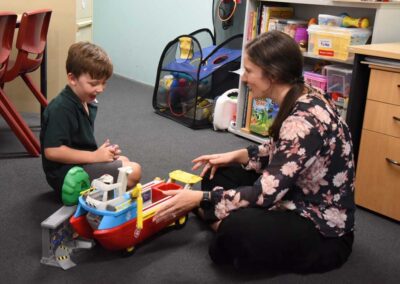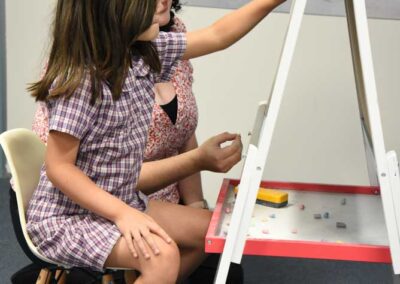 Starting kindergarten is an exciting milestone for your child and your family. As speech pathologists, we’ve worked with many parents and children navigating this transition, and we understand the mix of emotions it can bring. Here are some practical strategies to help your child feel confident and ready to start their kindergarten journey:
Starting kindergarten is an exciting milestone for your child and your family. As speech pathologists, we’ve worked with many parents and children navigating this transition, and we understand the mix of emotions it can bring. Here are some practical strategies to help your child feel confident and ready to start their kindergarten journey:
Foster Communication Skills
Language and communication are foundational for success in school. Here’s how you can support your child:
- Encourage Conversations: Talk about your child’s interests, ask open-ended questions, and model turn-taking in conversations.
- Expand Their Vocabulary: Introduce new words through books, everyday activities, and play. For example, during mealtime, describe textures and flavours like “crunchy, creamy, crispy, bitter, sweet”.
- Practice Following Directions: Use simple, multi-step instructions such as, “First put on your shoes, then grab your backpack.”
 Develop Social Skills
Develop Social Skills
Social interaction is a big part of kindergarten. Help your child build these skills:
- Play with Peers: Arrange playdates or group activities where your child can practice sharing, taking turns, and solving conflicts.
- Role-Play Scenarios: Pretend to be a teacher or a classmate and practice greetings, asking for help, or joining a group activity.
- Teach Emotional Vocabulary: Help your child name and express their feelings, such as happy, frustrated, or nervous.
Encourage Independence
Kindergarten is a time when children begin to take on more responsibility. You can prepare your child by:
- Practicing Self-Help Skills: Teach them to zip their jacket, open their lunchbox, and use the bathroom independently.
- Setting Routines: Establish consistent morning and bedtime routines to build predictability and reduce stress.
- Allowing Choices: Offer simple choices, like which snack to pack or which shirt to wear, to build decision-making skills.
Read Together Daily
Reading is one of the most powerful ways to support your child’s language and literacy development:
- Choose Age-Appropriate Books: Look for stories with engaging pictures and repetitive phrases to hold their interest.
- Talk About the Story: Ask questions like, “What do you think will happen next?” or “How does this character feel?”
- Point Out Words and Letters: Highlight words in the text to develop print awareness.
Support Emotional Readiness
Starting school can bring excitement and anxiety. Help your child feel emotionally prepared:
- Visit the School: If possible, attend orientation events or visit the playground to familiarize your child with the new environment.
- Read Books About School: Stories about starting kindergarten can help your child know what to expect.
- Validate Their Feelings: Reassure your child that it’s okay to feel nervous and that you’re there to support them.
Collaborate with Educators
Your child’s teacher and school staff are valuable partners in their success:
- Share Information: Let the teacher know about your child’s strengths, interests, and any challenges they might face.
- Ask Questions: Don’t hesitate to reach out to understand classroom expectations and how you can support learning at home.
- Stay Involved: Attend parent-teacher conferences, volunteer if possible, and maintain open communication with the school.
Every child is unique, and the transition to kindergarten will look different for each family. By focusing on communication, social-emotional skills, and independence, you’re giving your child the tools they need to thrive. Remember, it’s okay to seek help from professionals like speech pathologists, occupational therapists, or counsellors if your child needs extra support. You can contact us at Speak, Learn and Grow Speech Pathology Services on (02) 9526 2788 or fill in this form.
Here’s to a wonderful kindergarten year full of learning, growth, and joy!


 Develop Social Skills
Develop Social Skills
